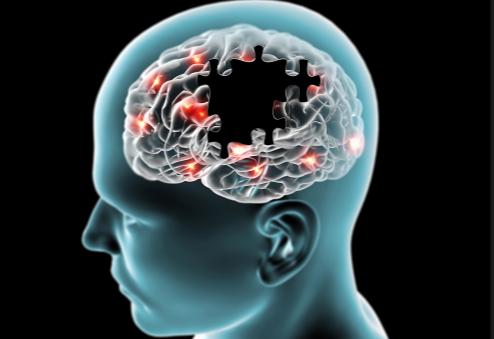Alzheimer’s is a brain disease that causes a slow decline in memory, thinking and reasoning skills.
Although it’s known to affect adults 65 years and older, up to 5 percent of those diagnosed have early onset AD.
But how can you know early enough if yourself or a loved one may suffer from the disease?
Every individual may experience one or more of these signs in a different degree.
Memory lapses
One of the most common signs of Alzheimer’s is memory loss, especially forgetting recently learned information.
Others include forgetting important dates or events and repeatedly asking for the same information.
Agitation and mood swings
It’s common for someone suffering from AD to seem anxious or agitated.
They may constantly move around and pace, get upset in certain places or become fixated on specific details.
Confusion over words
This can be a very frustrating experience for the speaker.
They may stall during a conversation, fixating on finding a particular word. They may also replace the right word with another word.
Missing sarcasm
People with both frontotemporal dementia (FTD) and Alzheimer’s disease tend to have a harder time picking up on sarcasm.
Repeating conversations
Repeating stories or questions is often one of the first signs of potential memory loss that family and friends notice.
Difficulty completing familiar tasks
Some people may experience a greater problem with concentration. Routine day-to-day tasks requiring critical thought may take longer as the disease progresses.
The ability to drive safely may also be called into question.
Vision loss
Vision problems can also occur. This may be as simple as an increased difficulty in reading.
Losing things
It’s not uncommon for people who suffer from dementia to put things in odd places.
For example, a person who used to always put their keys and mail in a specific spot might start stashing them in any number of other places.
Personality changes
The memory loss, vision problems and other challenges that Alzheimer’s disease brings can impact a person’s personality.
As people aren’t able to do the things they used to, they can become scared, paranoid or anxious.
These feelings can create any number of changes in personality, which may develop earlier or later on as the disease progresses.
Disregard for the law
Some younger people in the beginning stages of early-onset dementia lose their sense of social norms.
Shoplifting, breaking into someone’s house, and inappropriate interpersonal behaviors, such as sexual comments or actions, all make the list of dementia symptoms.
Copyright 2025 TheCable. All rights reserved. This material, and other digital content on this website, may not be reproduced, published, broadcast, rewritten or redistributed in whole or in part without prior express written permission from TheCable.
Follow us on twitter @Thecablestyle

